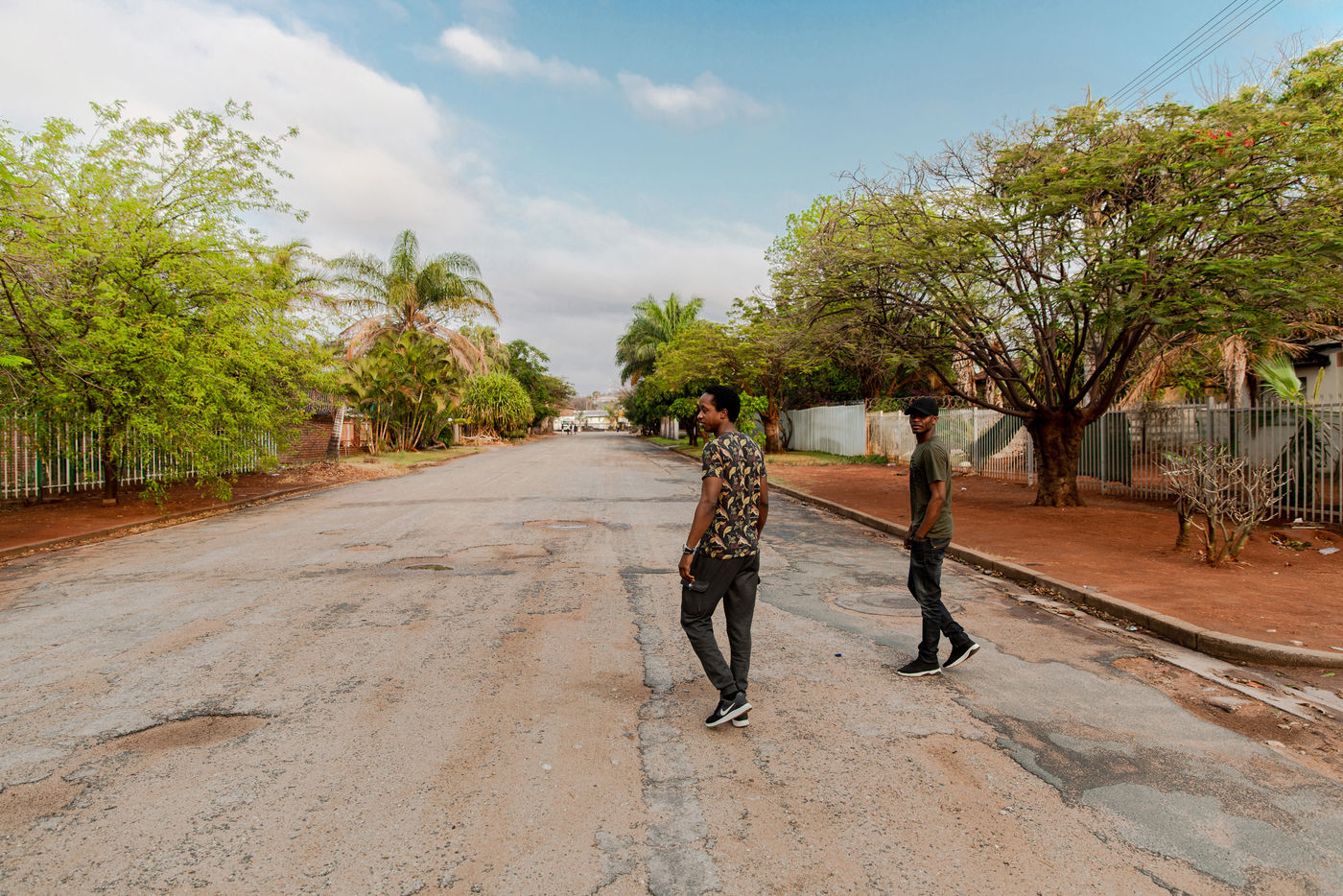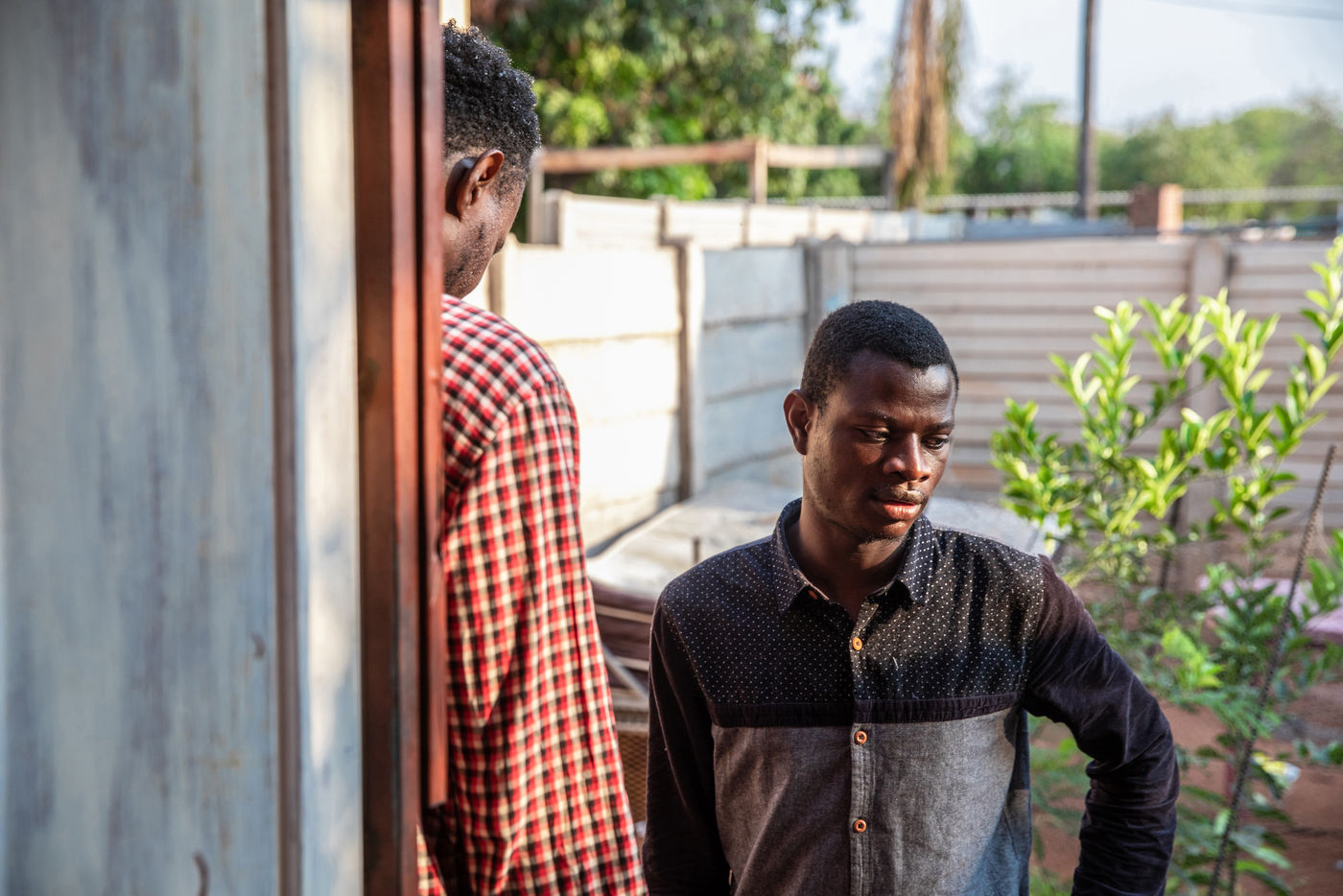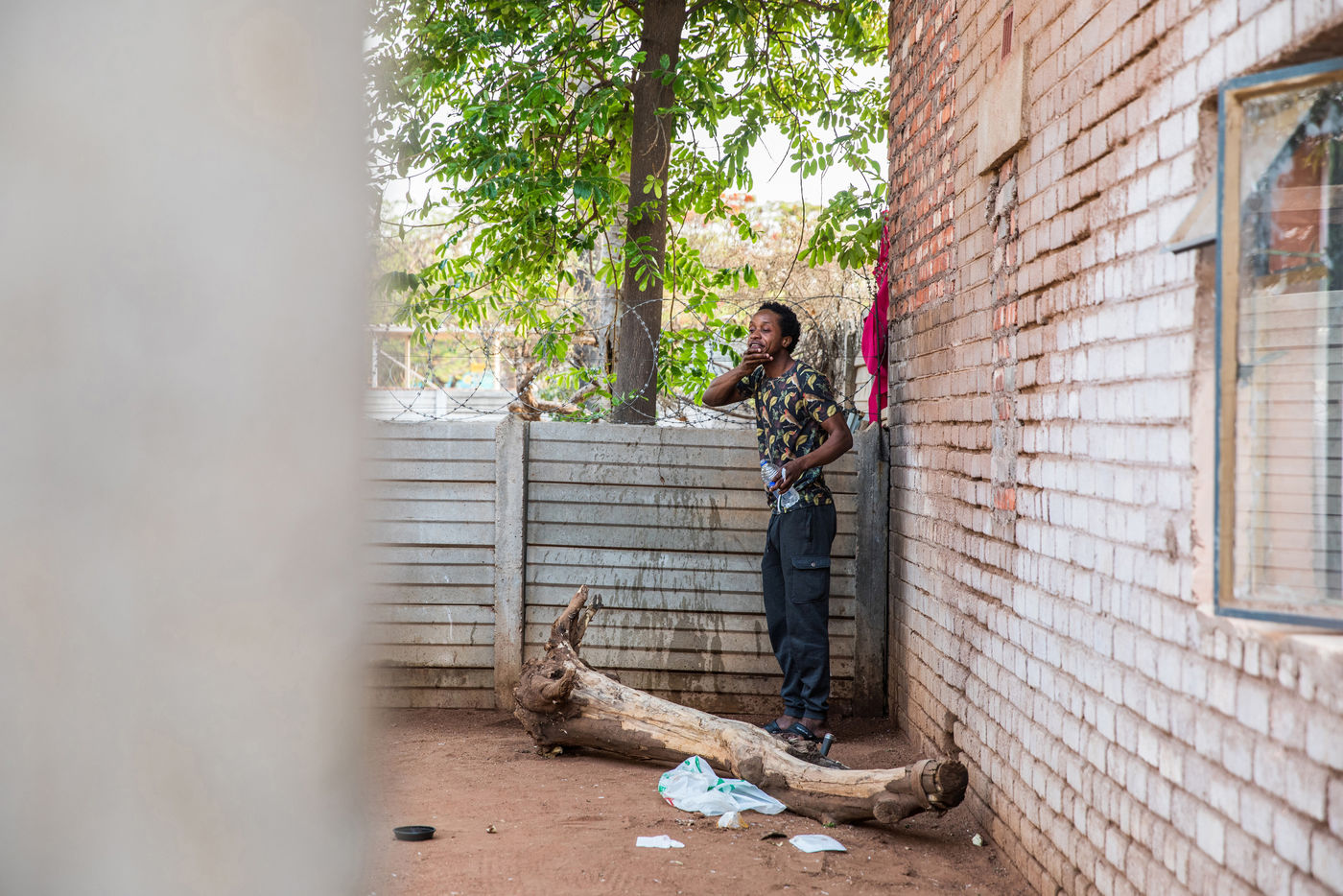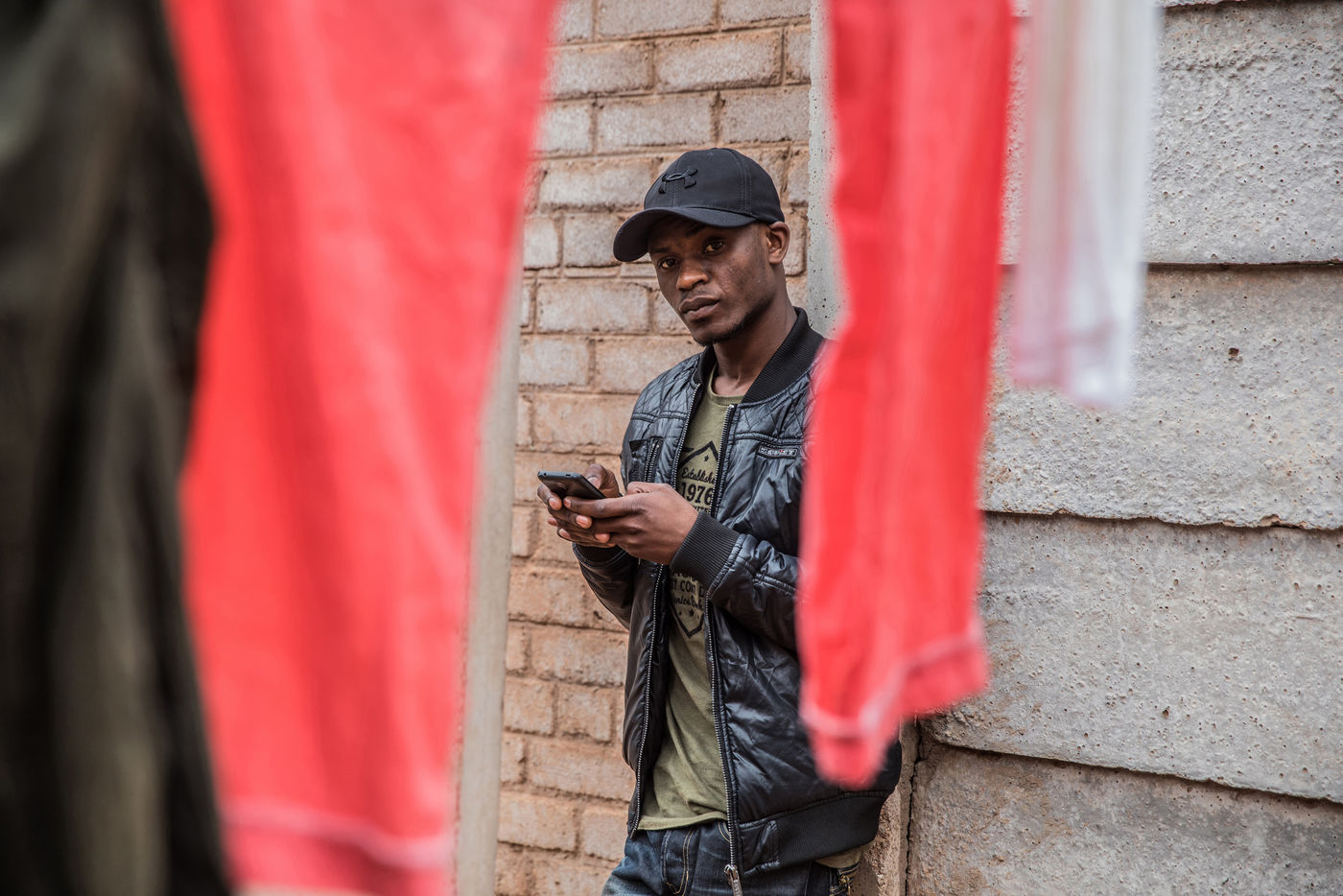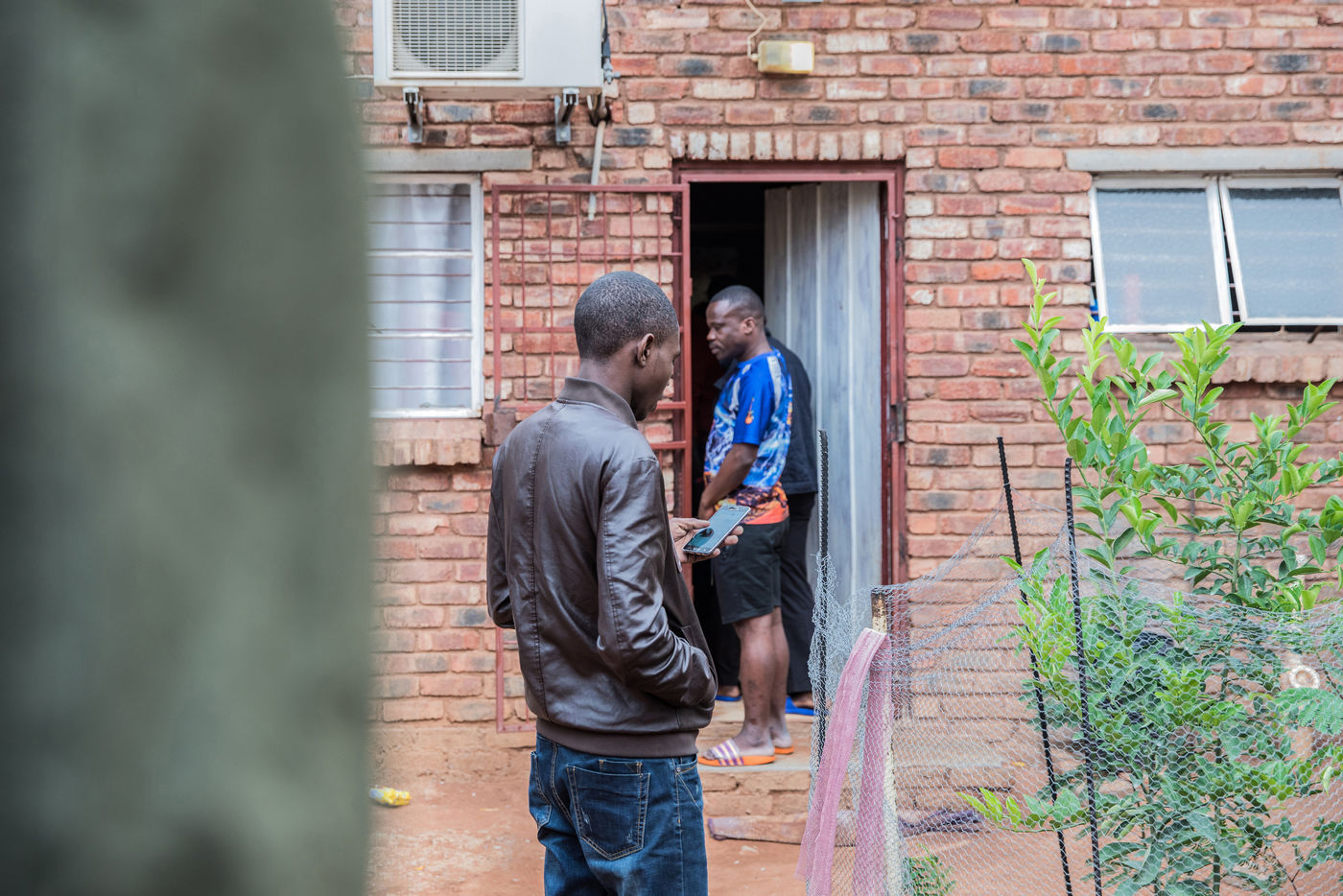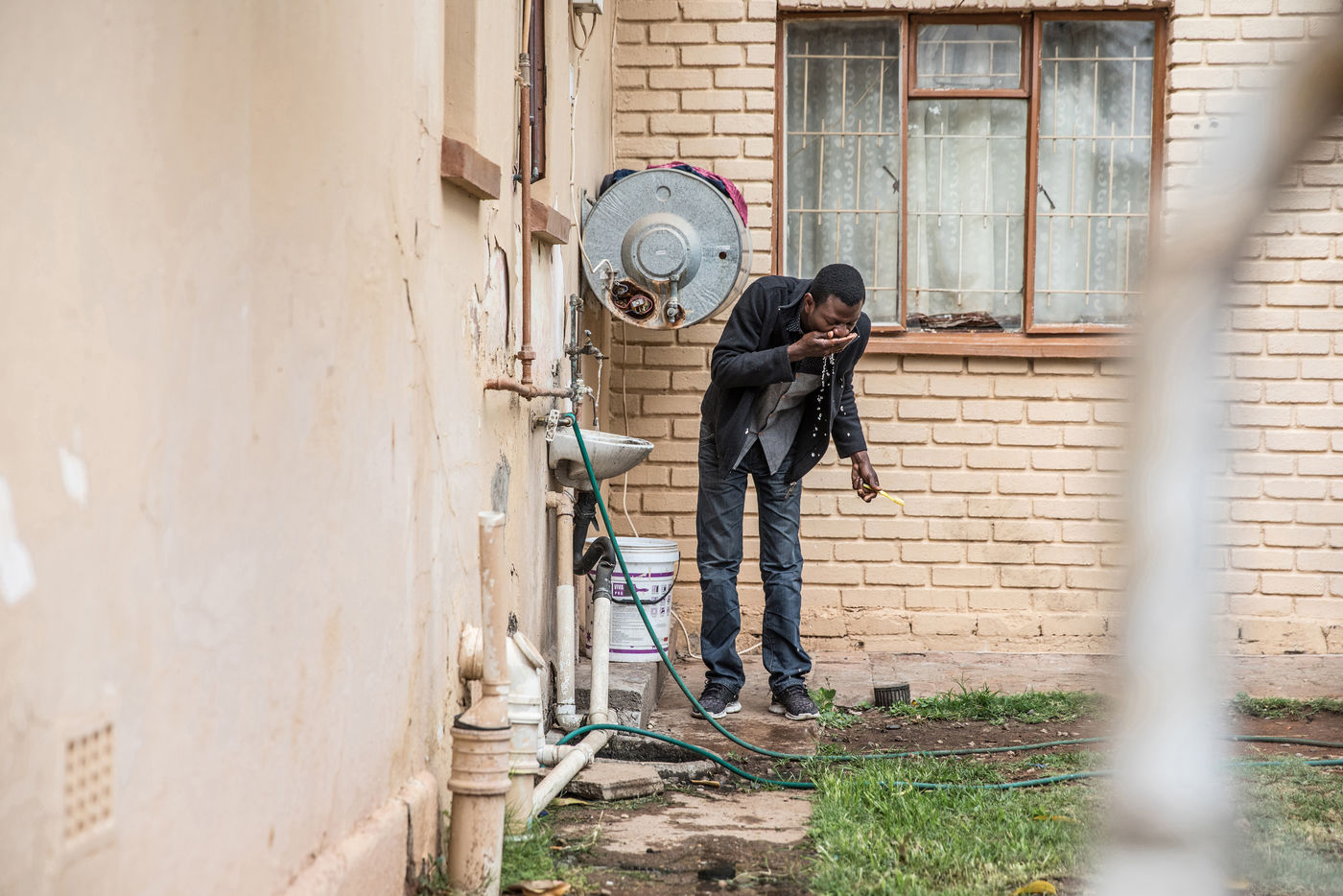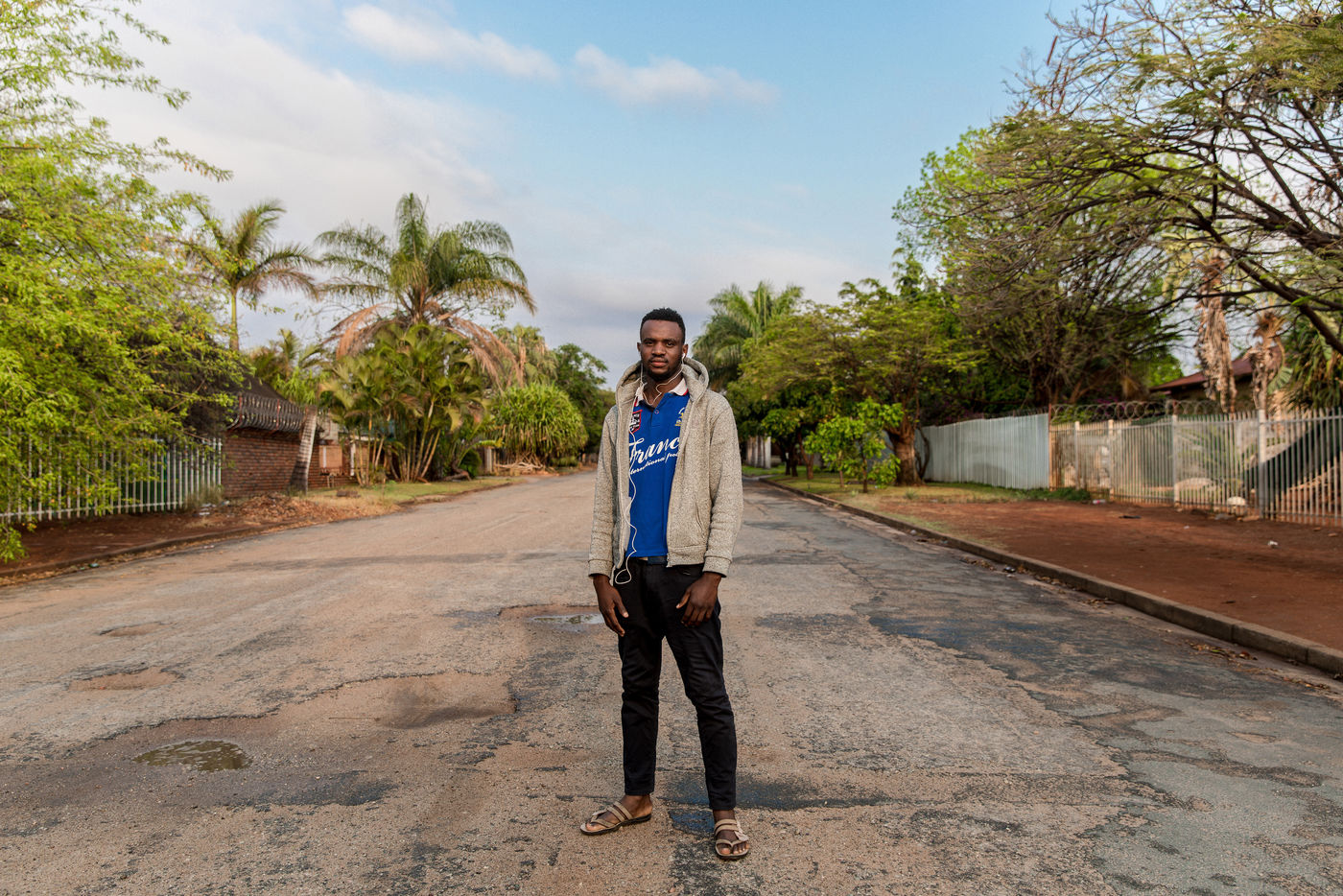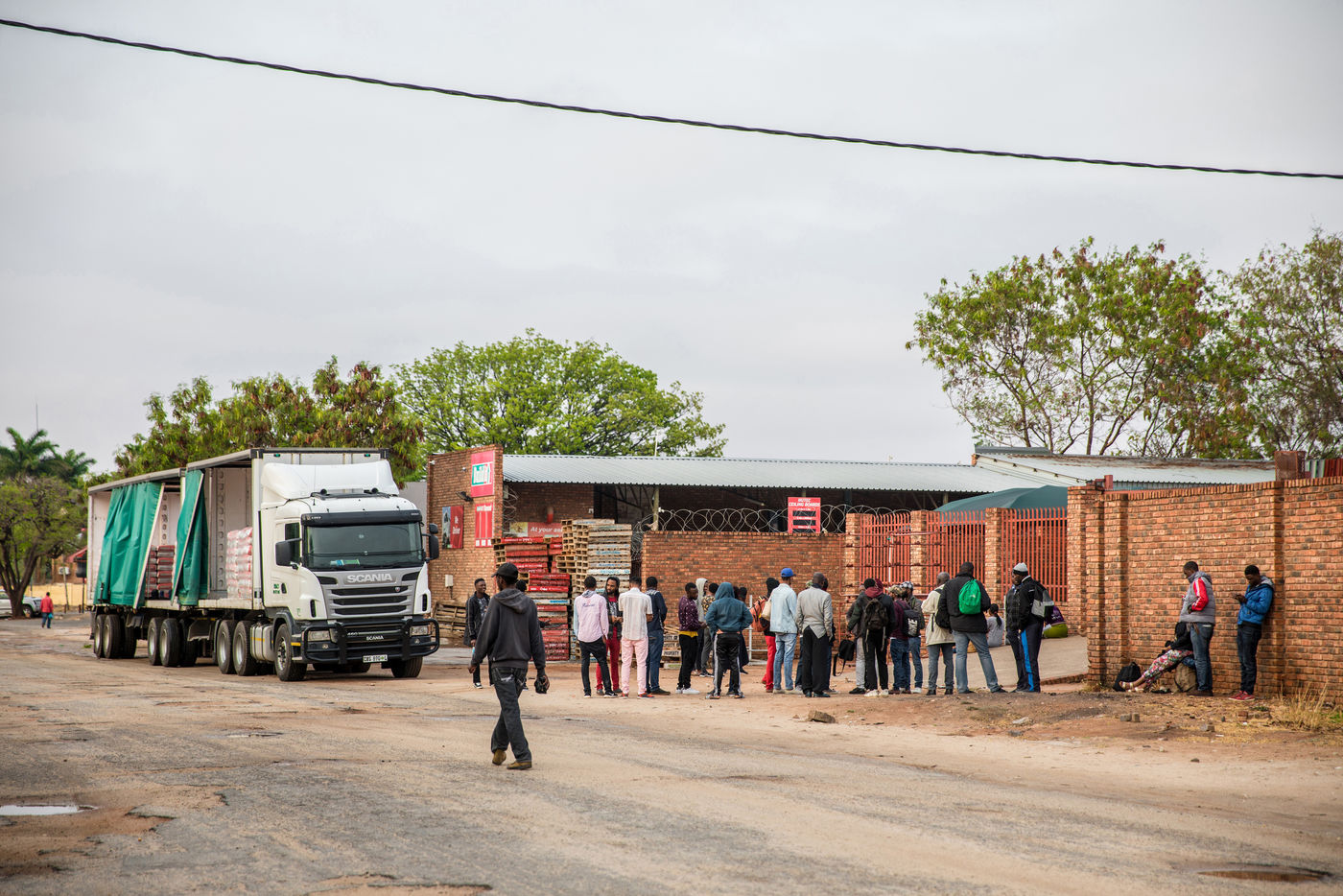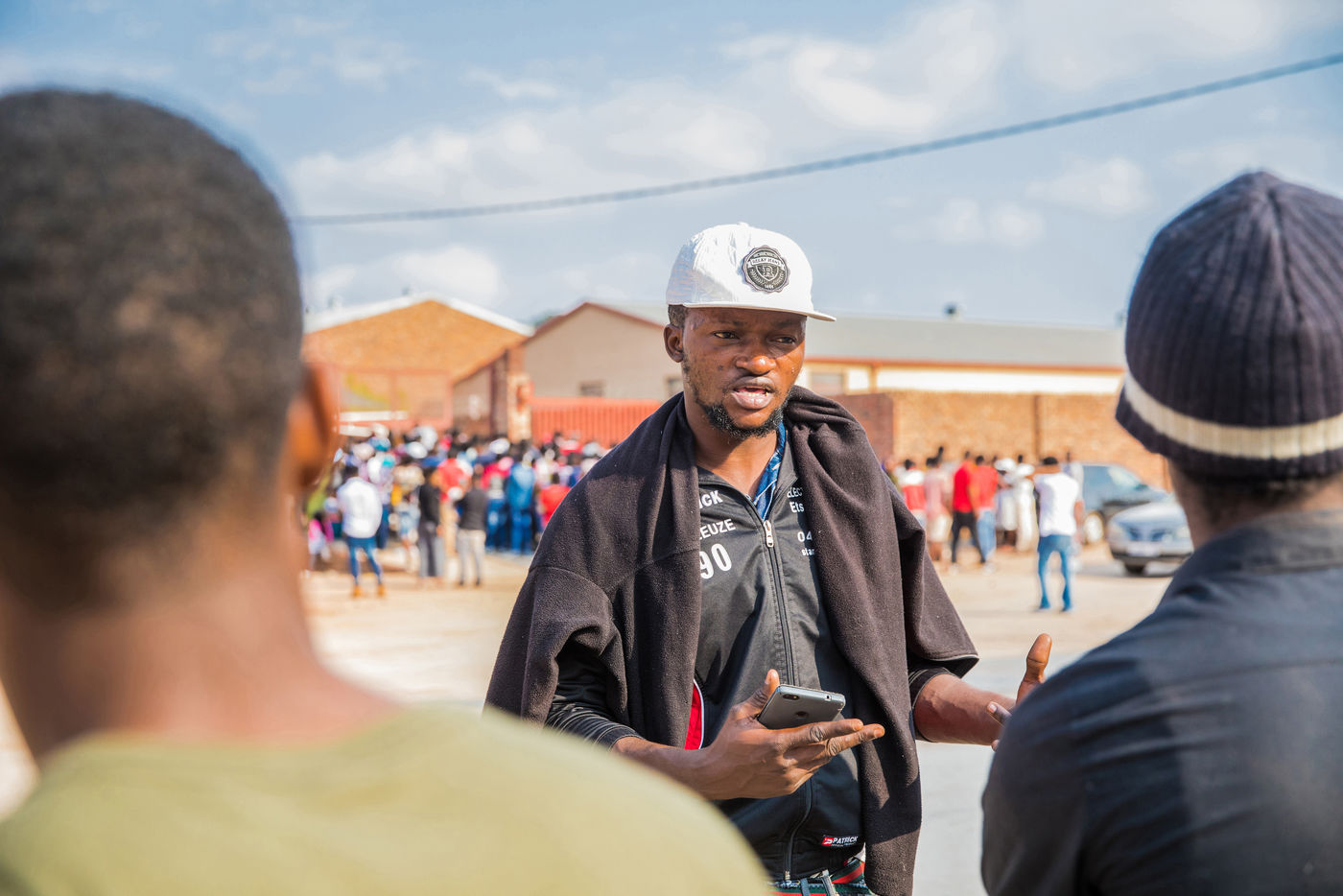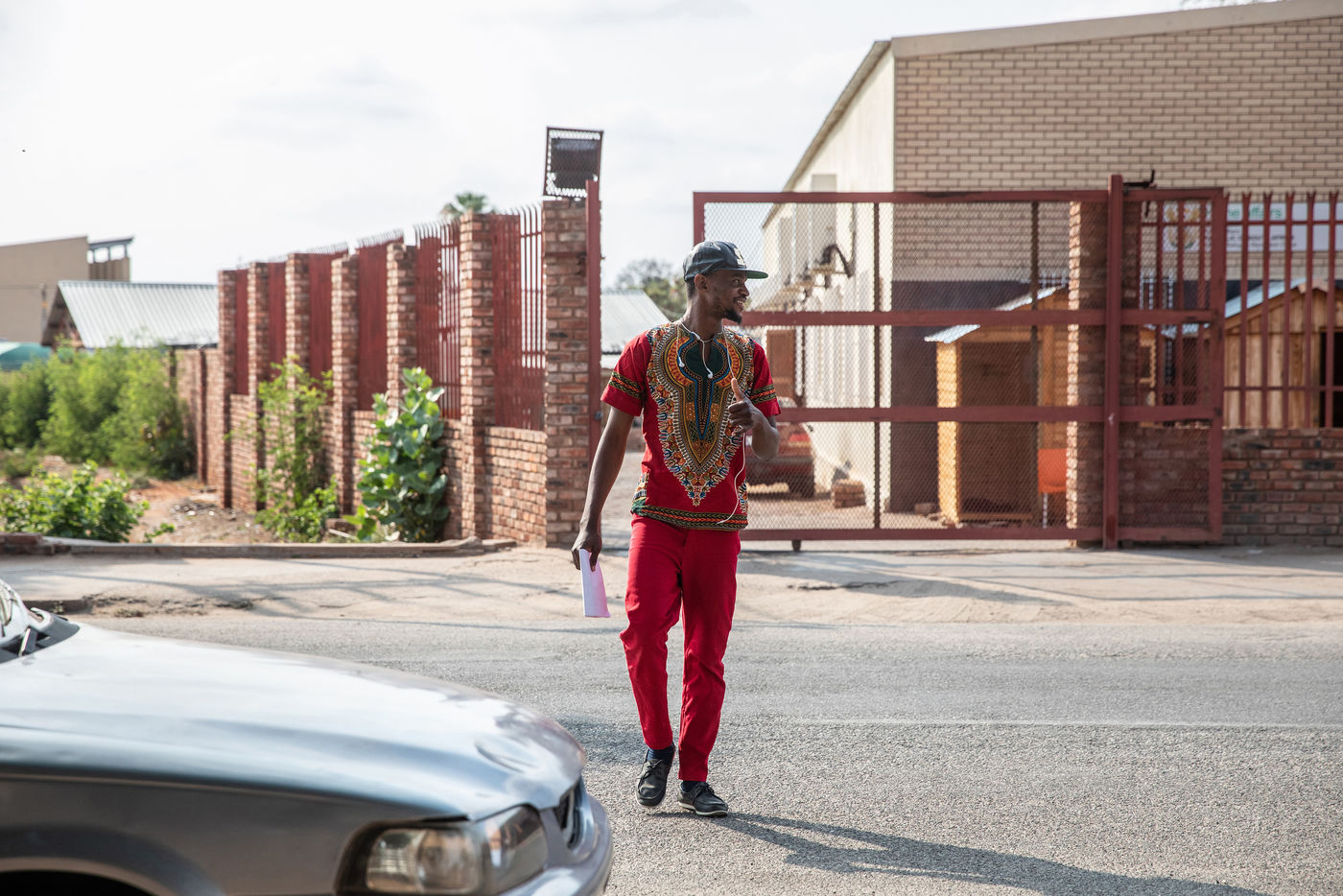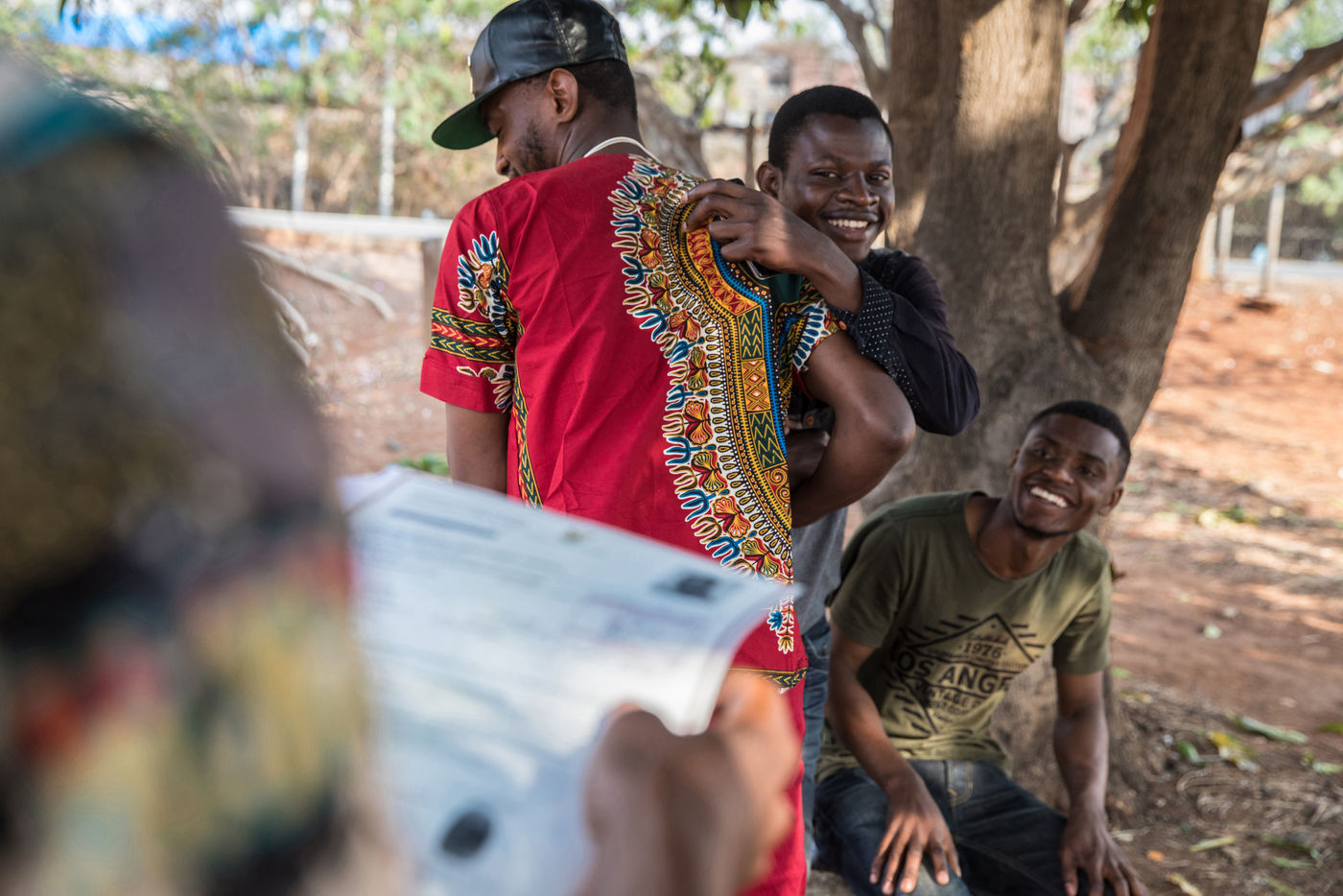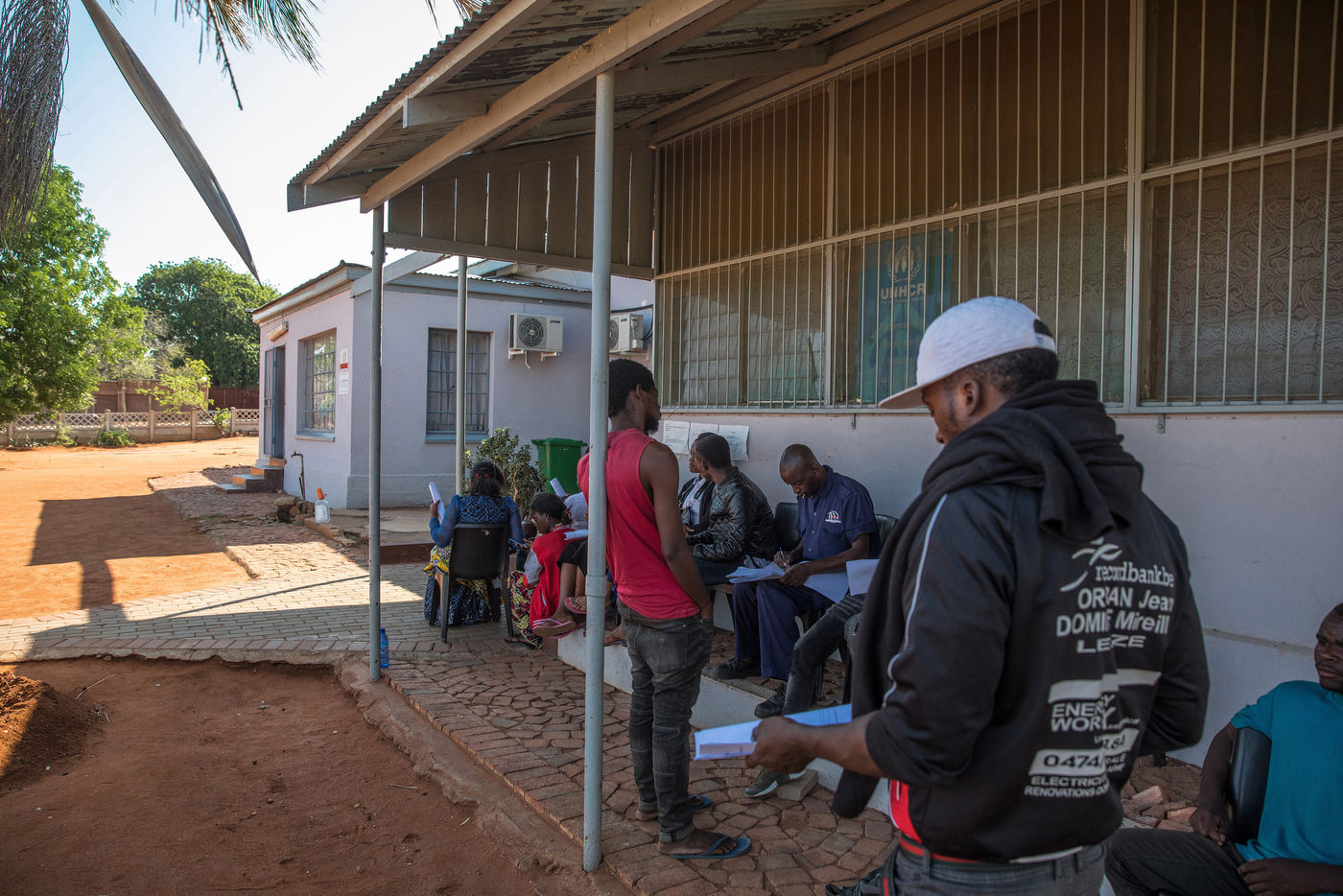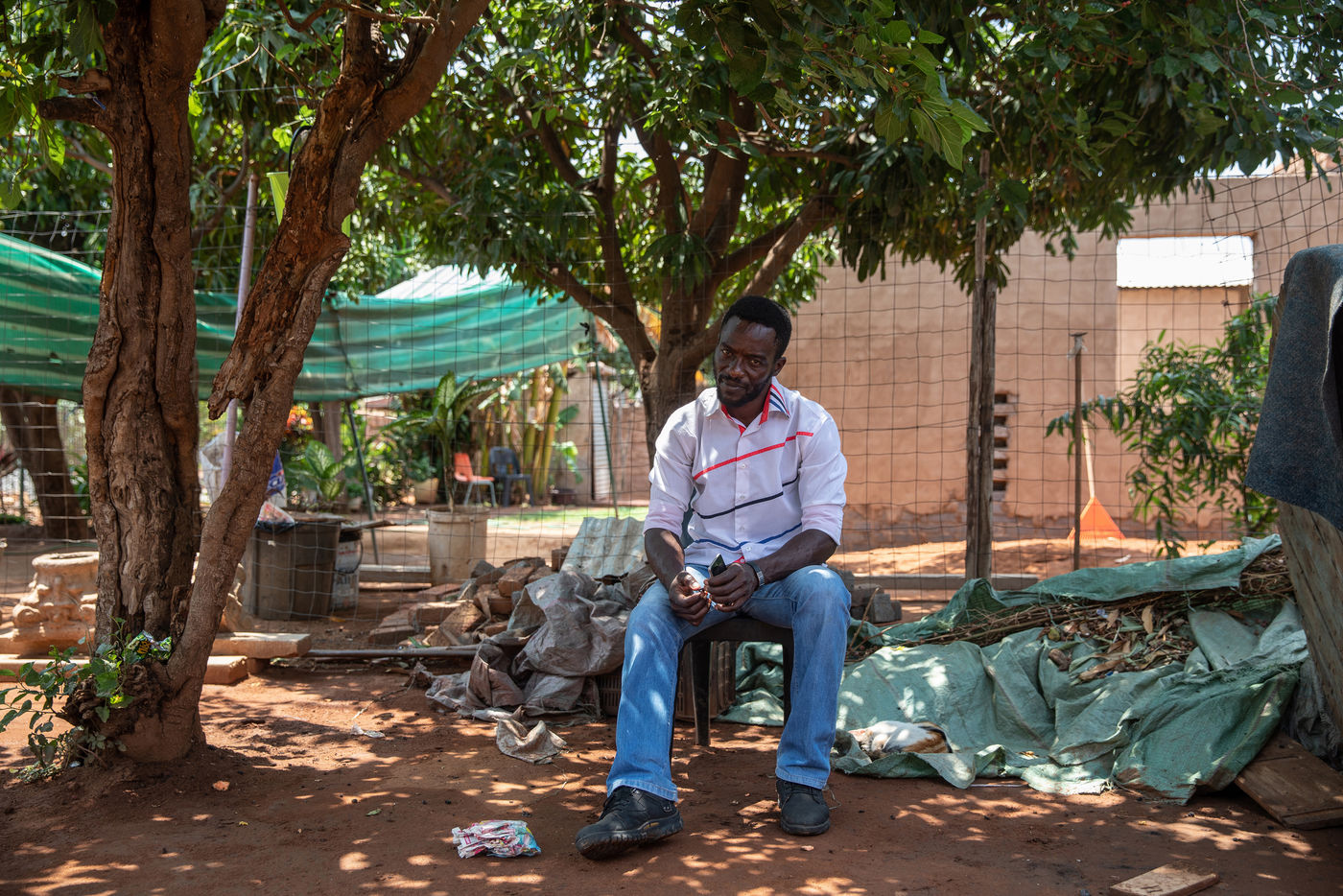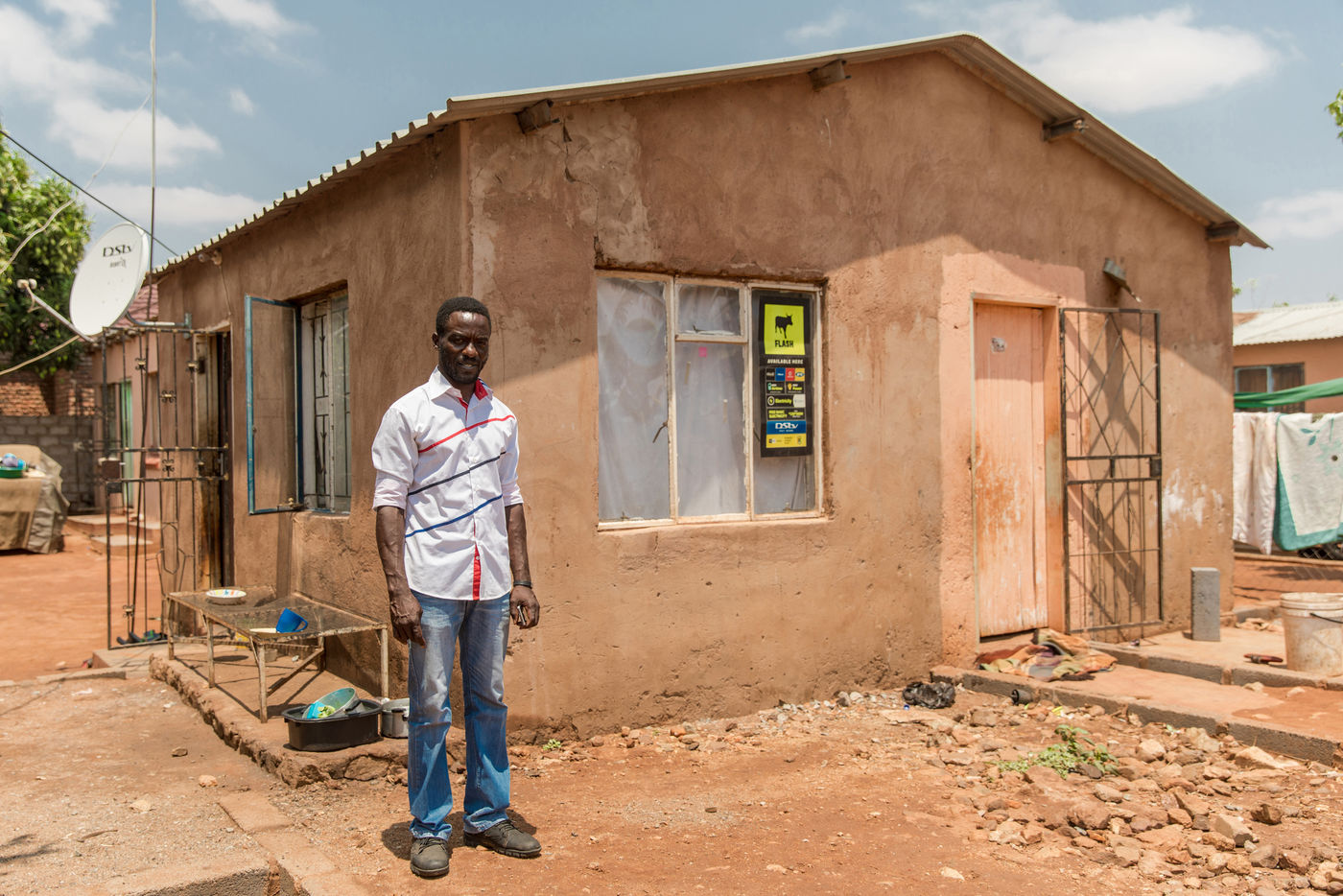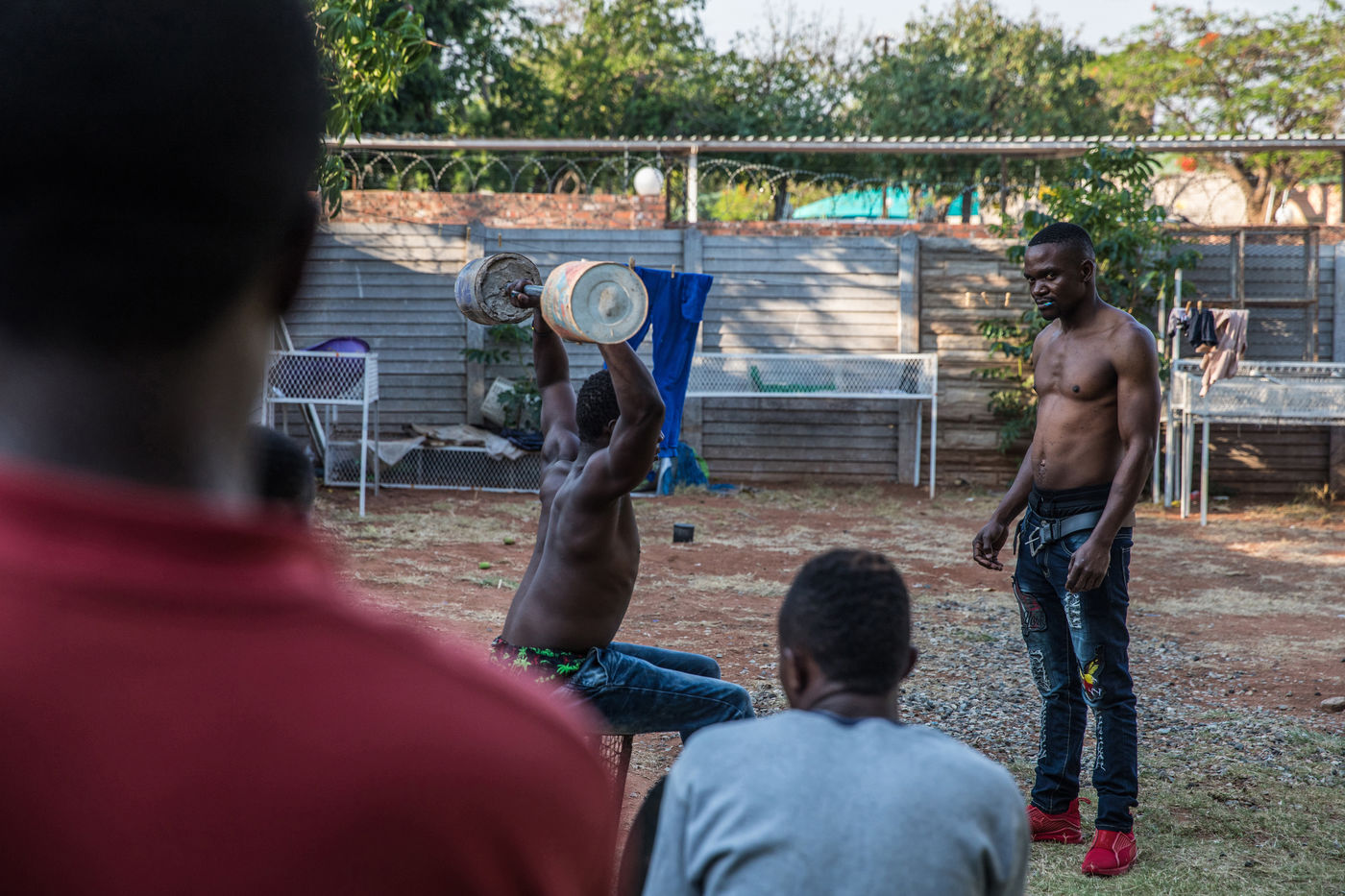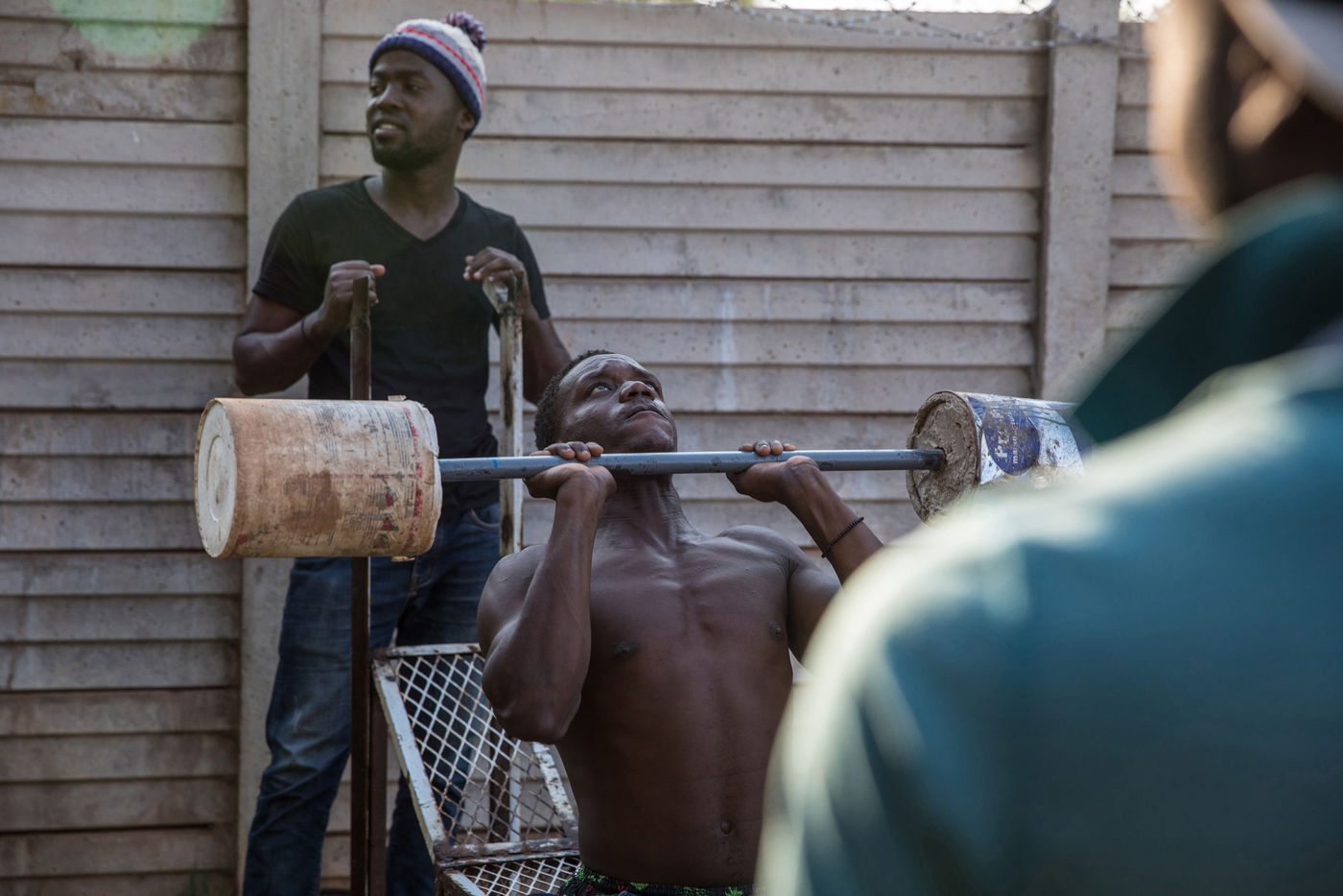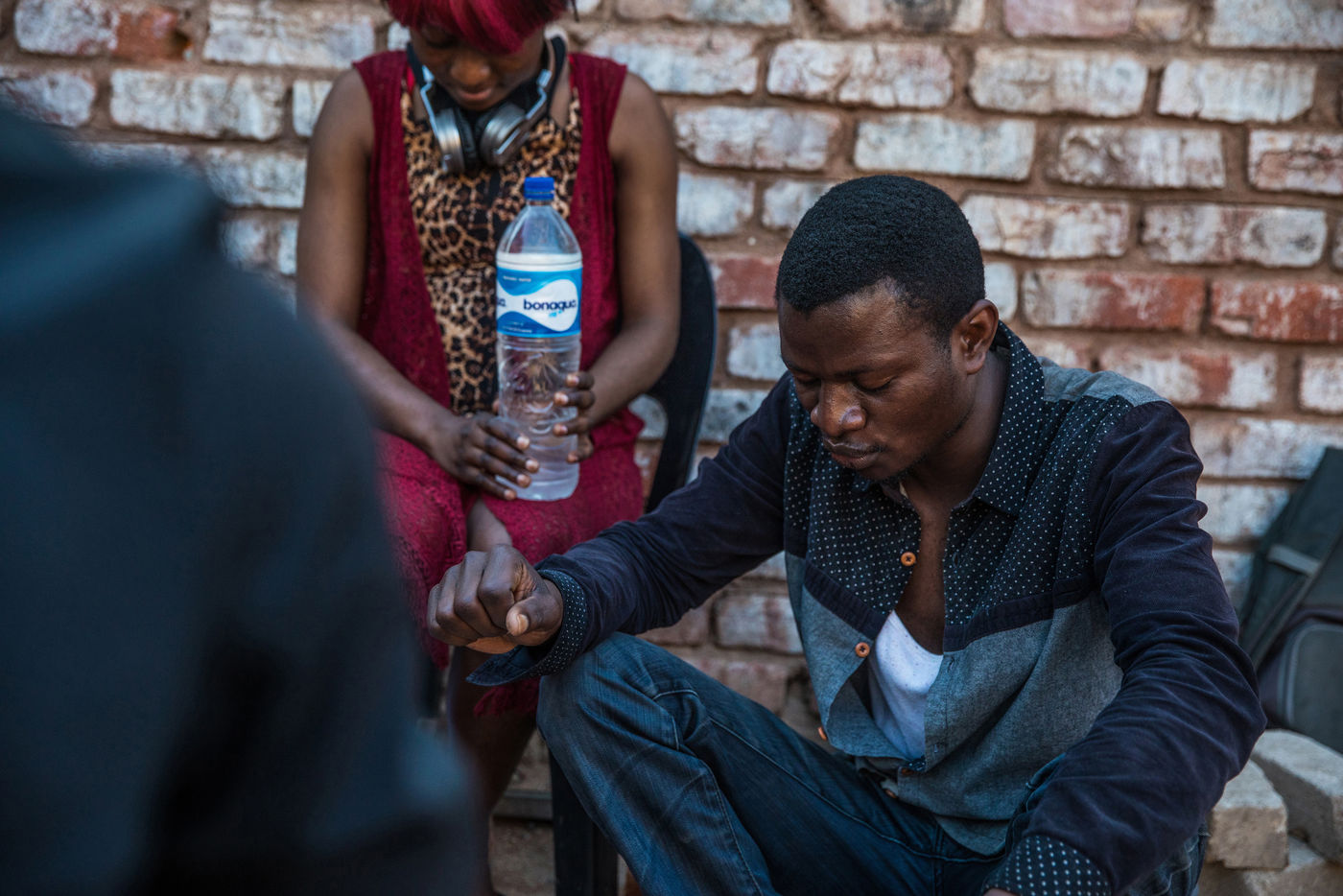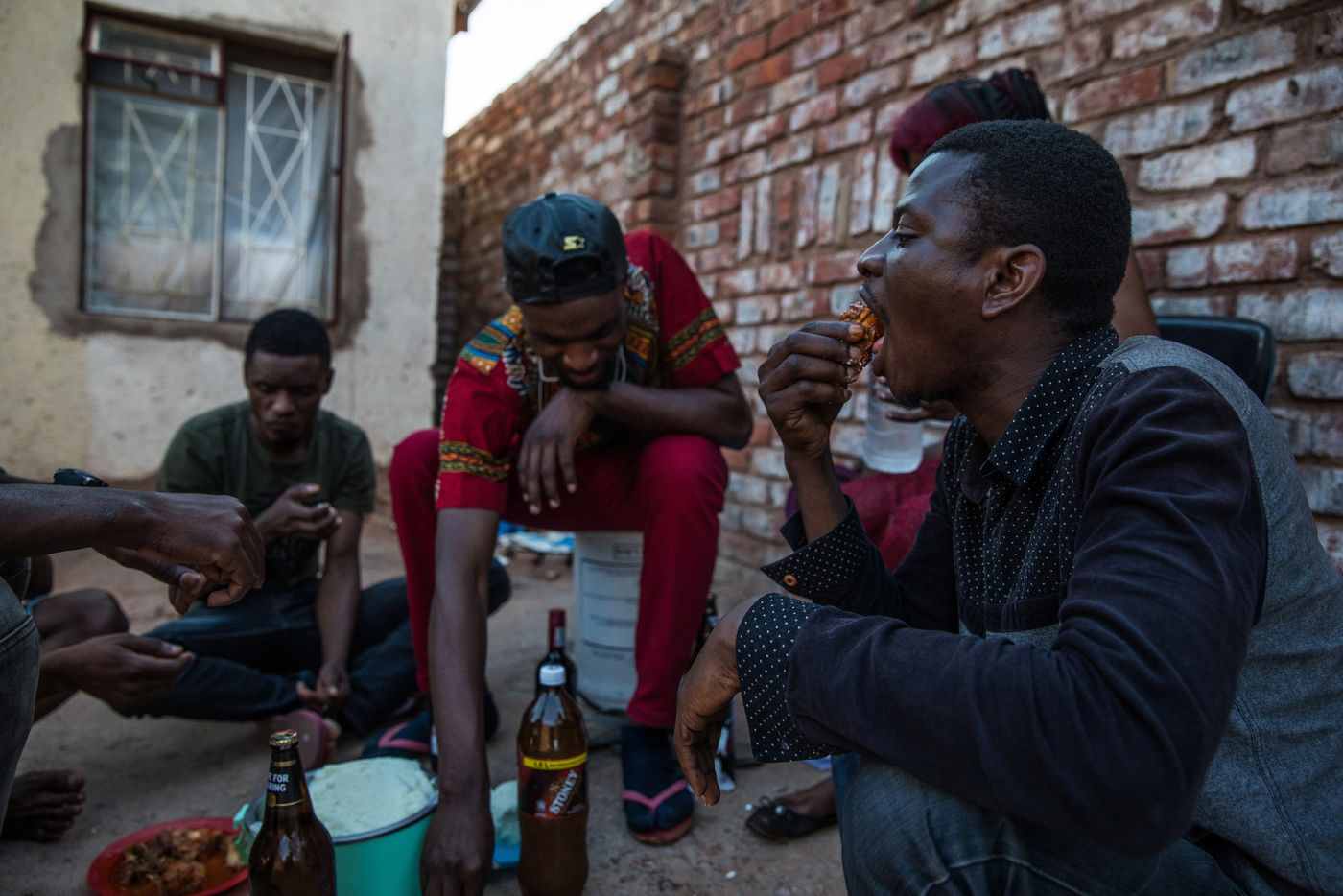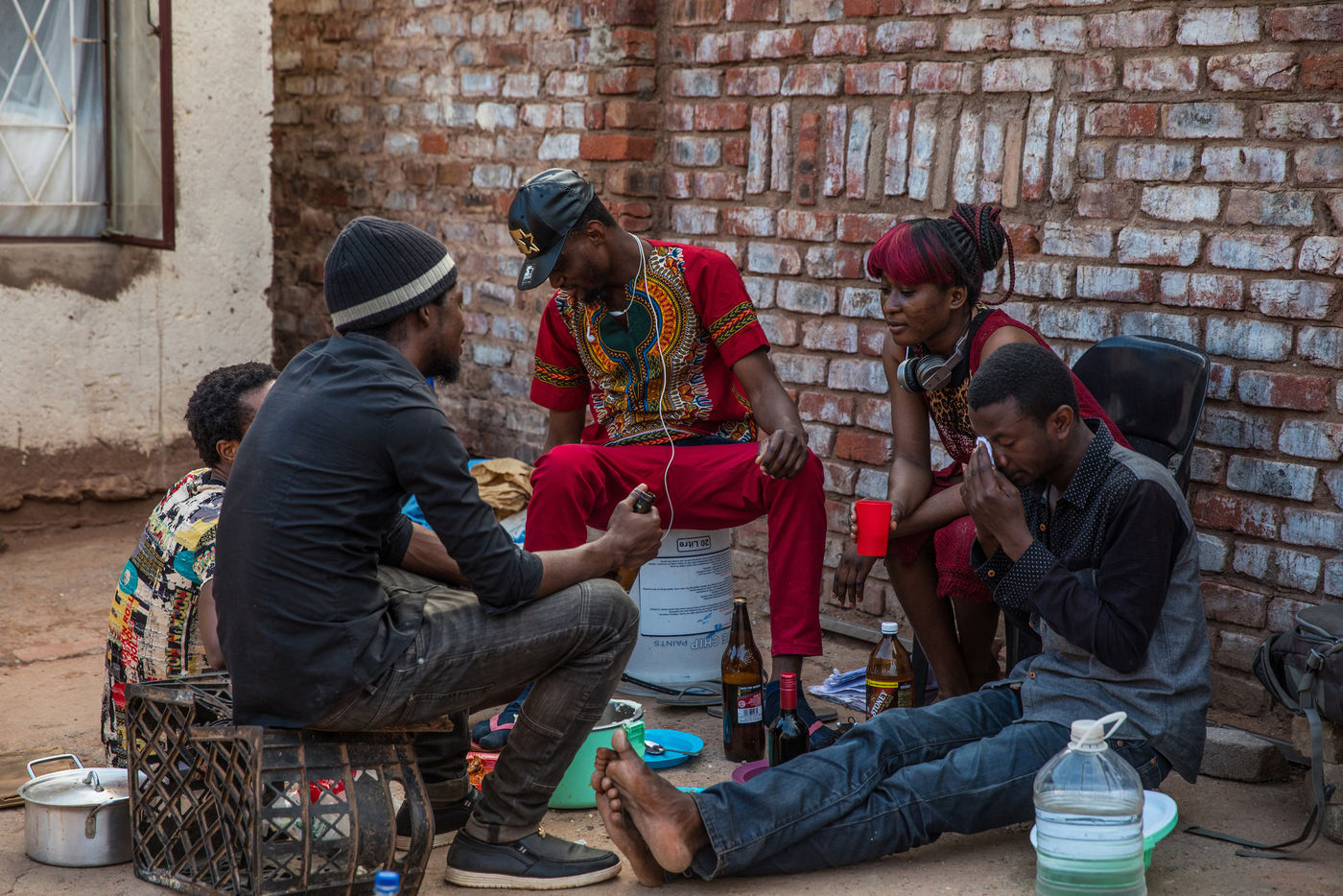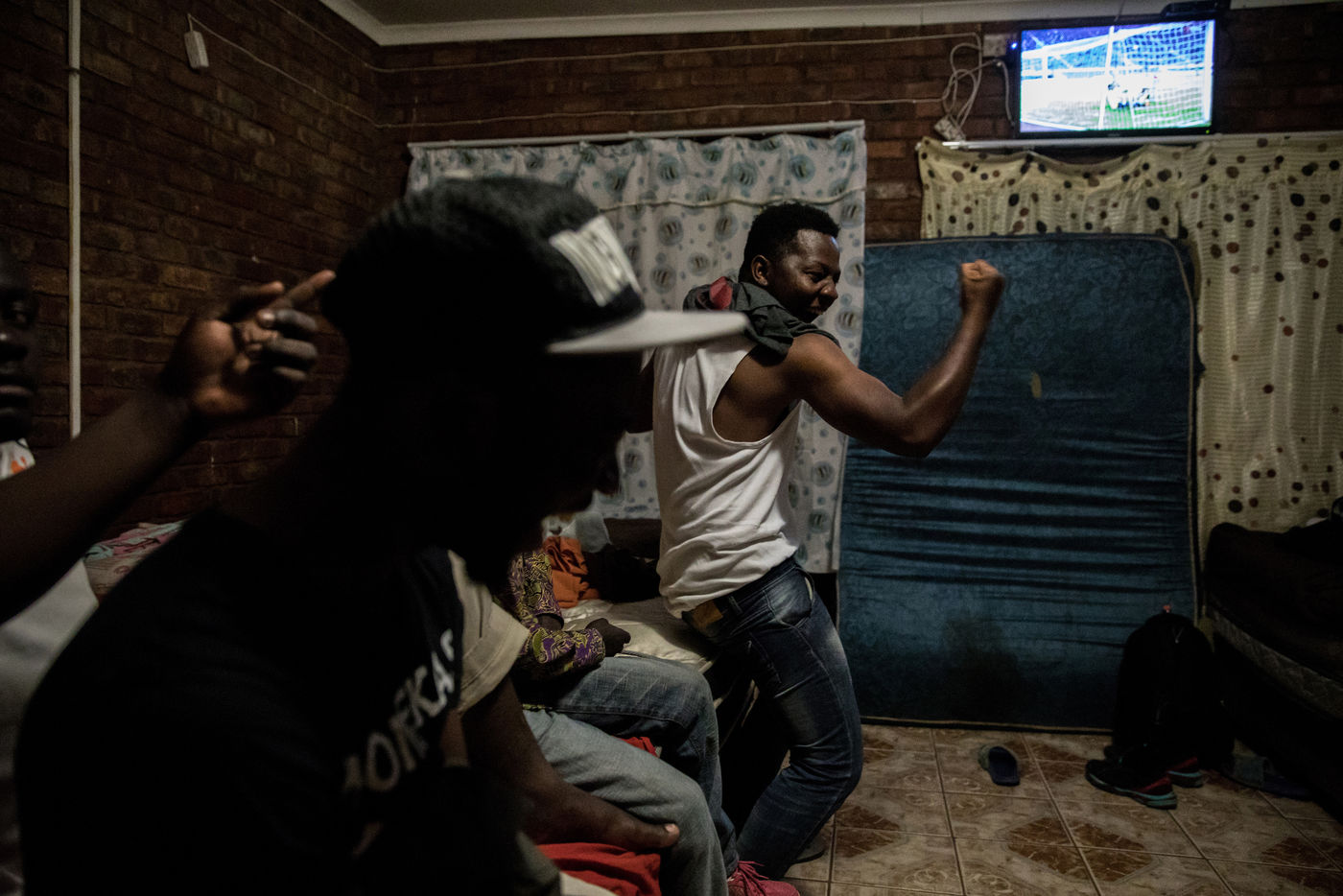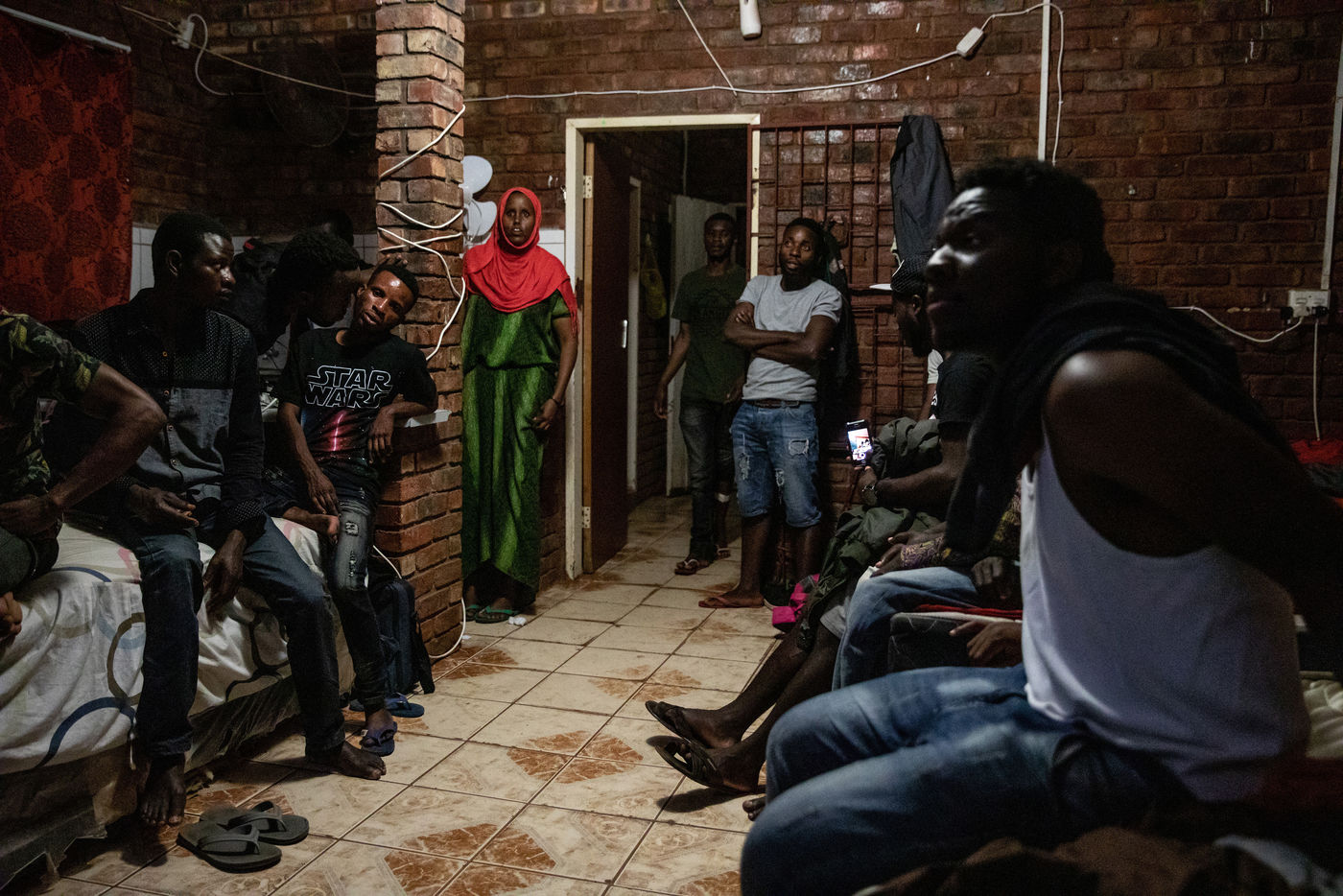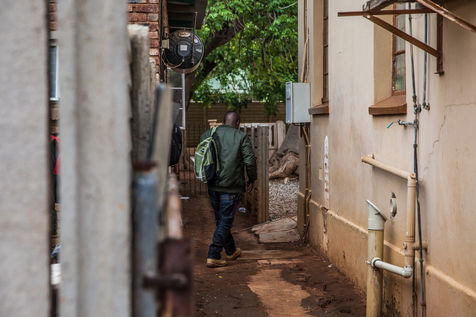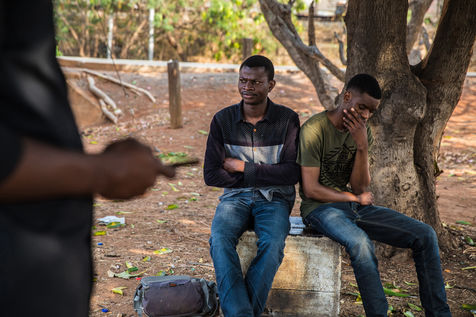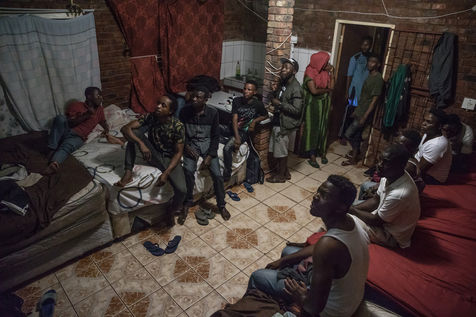Exilés Intérieurs
L'Afrique du Sud est depuis toujours un pays d'immigration, que ce soit celle des tribus bantoues venues d'Afrique centrale au 1er siecle ou celle des colonisateurs europeens au 17e. Depuis la fin du regime d'apartheid et la venue au pouvoir de l'ANC, ce pays connait un afflux d'etrangers africains sans egal.
Fuyant des situations economiques, sociales ou politiques difficiles dans leur pays d'origine, de jeunes hommes et femmes issus des quatre coins du continent convergent vers l'Afrique du Sud, reel «Eldorado» dans les imaginaires collectifs, afin de tenter d'y construire une vie meilleure.
L'Afrique du Sud, par sa constitution tres progressiste, octroyant de nombreux droits aux refugies et demandeurs d'asile afin de faciliter leur integration, est un pays extremement attractif. Mais, depuis quelques annees, suivant une tendance globale, cela est en train de changer.
Musina, la ville la plus au nord du pays, est le point de depart pour la plupart de ces nouveaux arrivants. Ici, ils doivent regulariser leurs situations avant de pouvoir continuer la route vers le sud. Chaque jour, plusieurs centaines d'etrangers patientent devant le departement du «Home Affairs» afin de tenter d'obtenir le statut de refugie ou simplement de renouveler leurs permis de sejour.
En raison d'un trop grand nombre de demandes, les delais sont extremement longs et bien souvent un nouvel arrivant doit attendre un mois avant de pouvoir deposer son dossier. Un mois, pendant lequel les demandeurs d'asile doivent subvenir a leurs besoins sans aucune assistance exterieure. Livres a eux-memes, bloques dans ce sas d'entree, ils attendent le feu vert pour pouvoir commencer leurs nouvelles vies.
Les mieux lotis arrivent a se loger dans des auberges de fortune, petites maisons tenues par des etrangers dans lesquelles des matelas recouvrent la surface habitable afin que chaque metre carre soit rentabilise.
Pour ceux qui n'ont plus d'argent, il n'y a que deux solutions : dormir dans la rue ou tenter sa chance dans un des camps de refugies improvises a Nancefield, le township de Musina.
A Musina, lennui regne. Les journees se ressemblent toutes, rythmees par de longues conversations autour du "Home Affairs" dans l'attente de son rendez-vous. Un melange de rumba congolaise et de rap francais en musique de fond, de courtes seances de musculation s'improvisent dans un jardin. Le soir, les matchs de football retransmis dans les dortoirs font oublier le quotidien.
Une fois les demarche terminee, la majorite voit sa demande refusee et doit entamer une procedure d'appel qui peut prendre de nombreuses annees. Pendant ce temps, un titre de sejour provisoire est delivre. Celui-la, bien qu'officiel n'est pas reconnu par toutes les institutions et doit etre renouvele regulierement, rendant l'integration en Afrique du Sud extremement difficile.
Malgre la precarite de cette situation, nombreux sont ceux qui continuent a venir tenter leur chance dans la "Nation Arc-en-Ciel".
Inner Exile
South Africa has always been a land of immigration; from the Bantu tribes of Central Africa in the 1st Century to the European colonizers in the 17th. Since the end of Apartheid and the rise of democracy, the country has seen a huge rise in the number of African migrants.
Fleeing extraordinarily difficult economic, social or political situations in their home countries, many young men and women from all over the continent gravitate to South Africa looking for a better life.
The constitution of Post Apartheid South Africa was always seen as one of the most progressive in the world in all its aspects. When it comes to migrant rights, it provided many opportunities for those seeking refuge to integrate in society, making the country even more welcoming to foreigners. But over the last years, mirroring global trends, this reality is changing. Hostility and misunderstandings are on the rise.
Musina is the northernmost city of the country and is the entry point for most of the "new- comers". Here they have to wait to be processed and obtain the necessary legal documents to continue their way south. Every day, hundreds of foreigners assemble in front of the department of Home Affairs, hoping to obtain their refugee status or to renew their documents.
Due to a huge number of applicants, the procedure take a long time. Very often a new comer has to wait a month before being able to start his application. A month during which he has to fend for himself without any exterior help. Stuck in some kind of Limbo, between his past and the future he came to seek. He has to wait not knowing if he will be given the opportunity he so desperately wants to start his new life.
Of course, those with means manage to find a space in one of the makeshift hostels of the town. Owners convert their homes, spreading mattresses on the floor, making sure every inch of space is used.
For those who run out of money there are only two options: sleep in the streets or head to one of the improvised refugee camps in Nancefield, Musina's township.
In Musina, time stands still and the days go by, all looking the same. A mix of Congolese rumba and French hip-hop can be heard in the background. Young men lift weights in the garden of one of the hostels. In the evenings, the football games on television help the minds escape from the daily routine.
For the most part, the application is denied. Their only option: to start an appeal procedure, another process which can take years. While the appeal is put in motion they will get a temporary asylum seeker permit. Even though it is an official document, many institutions
don't recognize it fully. It has to be renewed regularly. Making the integration into the country even more a fore-lone hope.
But despite all the hardships and the precarity of the situation, South Africa remains, for those many who come every day to try their luck, Desmond Tutu's "Rainbow Nation".
